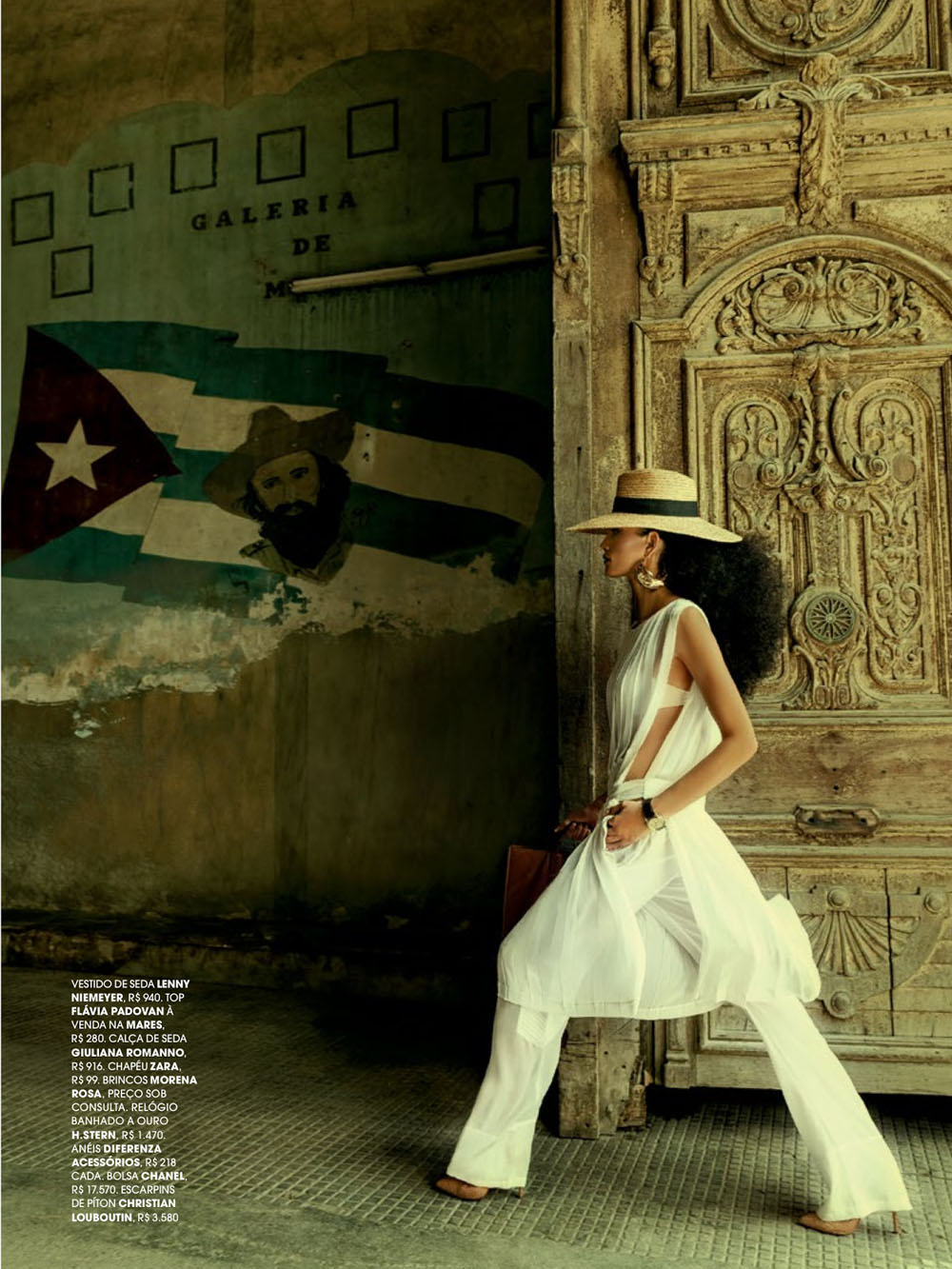Would Frantz Fanon Agree With Orville Lloyd Douglas & His Essay 'Why I Hate Being A Black Man'?
/
Seeing these images of Marcelia Freesz, lensed by Fernando Louza for Marie Claire Brazil’s November issue got me thinking about Cuba and America. Paulo Martinez styles Marcelia in sheer, tropical elegance with utilitarian touches for a hard soft effect in ‘Havana Club’.
This weekend I caught Canadian Orville Lloyd Douglas on CNN, talking with Don Lemon about his essay ‘Why I hate being a black man’. His comments have caused both a backlash and an uproar — and also interesting dialogue like Douglas’ discussion with Lemon.
The issue of black self-hatred is something I am supposed to pretend does not exist. However, the great French psychiatrist Frantz Fanon wrote about this issue in his ground breaking book Black Skin White Masks in a chapter called “the Lived Experience of the Black Man”. According to Fanon, the black man is viewed in the third person, and he isn’t seen as a three-dimensional human being. The black man internalizes the perspectives of white society and its negative thoughts about blackness affect his psyche. In the chapter, Fanon discusses a white child calling him the “N word” and how he becomes cognizant of how he is different and viewed as someone people should fear.
Posting ‘Havana Club’ coincides with Sunday’s New York Times ‘Opinionator’ column A Lesson From Cuba on Race. I was researching Cuba’s health and education statistics like infant mortality rates — where Cuba’s is lower than America’s. It’s rates of vaccination and even education are equal to or better than ours. See Cuba; see America.
Written by Alejandro de la Fuente, director of the Afro-Latin American Research Institute at Harvard University’s Hutchins Center for African and African American Research and the author of “A Nation for All: Race, Inequality and Politics in Twentieth-Century Cuba.”
De la Fuente’s words echo those of Orville Lloyd Douglas and Frantz Fanon:
In other words, despite Cuba’s success in reducing racial inequality, young black males continued to be seen as potential criminals. Perceptions of people of African descent as racially differentiated and inferior continued to permeate Cuban society and institutions. The point is not that issues of economic justice and access to resources are irrelevant. Eliminating massive inequality is a necessary step if we are ever going to dismantle racial differences. There is, as Gutting argues, a deeper issue of access to basic resources that does need solution. But the Cuban experience suggests that there are other equally deep issues that need to be addressed as well.
Those issues relate to what another writer here, George Yancy, in writing about the Trayvon Martin case, referred to as a “white gaze” that renders all black bodies dangerous and deviant. Unless we dismantle this gaze and its centuries-strong cultural pillars, it will be difficult to go past the outrage on race.
As for Cuba’s relations with the US, Reuters reported yesterday that a new mood of cooperation — “a surprise warming” is “raising expectations of possible agreements to bring the two countries closer after more than 50 years of hostility.”
And who said that fashion isn’t relevant in provoking conversation! ~ Anne
Related reading: Jay Z breaks Barneys silence, says he’s going forward with fashion line deal and promises to personally tackle racial profiling allegations.

